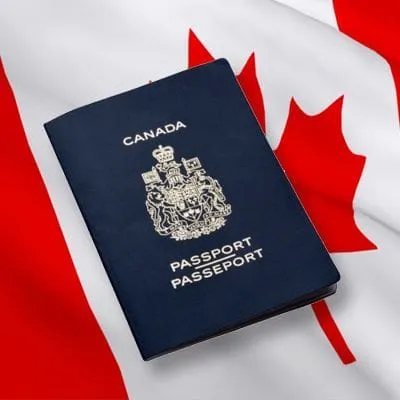
Becoming Canadian: Do You Need to Renounce Your Original Citizenship?
As Canada continues to welcome thousands of immigrants every year, one common question lingers among newcomers: “Do I need to give up my original citizenship if I become a Canadian citizen?”
The answer? Not always.
Canada recognizes and allows dual citizenship, meaning you can hold citizenship in Canada and another country at the same time — but whether you can keep your original nationality depends on your country of origin.
Here’s everything you need to know about the dual citizenship rules for Canada’s most common immigrant source countries, and what to expect when naturalizing as a Canadian.
Canada and Dual Citizenship: What You Should Know
Canada does not require you to renounce any other citizenship when becoming a Canadian. However, your home country’s laws determine whether you can keep dual citizenship or will automatically lose your nationality upon acquiring Canadian status.
Dual Citizenship Rules in 10 Major Source Countries
Below is an overview of dual citizenship policies from the top 10 countries whose citizens most frequently naturalize in Canada:
| Country | Dual Citizenship Allowed? | Conditions or Notes |
|---|---|---|
| India | ❌ No | Indian citizens must renounce their Indian citizenship upon becoming Canadian. |
| Philippines | ✅ Yes | Allowed under specific conditions (e.g., birth in the Philippines or marriage to a Filipino). |
| China | ❌ No | Dual citizenship is not recognized; citizenship is automatically lost when another nationality is acquired. |
| Nigeria | ✅ Yes | Permitted only if citizenship was acquired by birth or descent. |
| Pakistan | ✅ Yes | Permitted for citizens from countries with a bilateral agreement, including Canada. |
| Iran | ❌ No | Iran doesn’t allow renunciation unless specific criteria are met. Dual citizens are treated as Iranian citizens. |
| USA | ✅ Yes | Fully recognized. Must enter/exit the U.S. with a U.S. passport. |
| Brazil | ✅ Yes | No restrictions. But consular access may be limited while in Brazil. |
| France | ✅ Yes | No limitations or special requirements. |
| Syria | ✅ Yes | Recognized, but Syrian law gives priority to Syrian nationality in legal matters. |
India: Citizenship Must Be Relinquished
India does not allow dual citizenship under its laws. Indian nationals who become Canadian citizens must formally renounce their Indian citizenship and surrender their Indian passport immediately.
Continuing to use an Indian passport after naturalizing in Canada is a punishable offence under India’s Passport Act, 1967. However, individuals may apply for OCI (Overseas Citizen of India) status, which grants long-term residency and specific rights, but not dual citizenship.
Philippines: Dual Citizenship with Conditions
The Philippines allows dual nationality, but only in specific situations:
- Birth in the Philippines followed by naturalization elsewhere
- Marriage to a Filipino citizen
- Filipino parentage while born abroad
Others must go through a retention or reacquisition process if they want to preserve their Filipino citizenship after becoming Canadian.
China: No Room for Dual Status
The People’s Republic of China strictly forbids dual citizenship. Anyone who voluntarily obtains a new nationality — including Canadian — is automatically stripped of Chinese citizenship.
Dual Chinese-Canadian citizens are urged to travel with a Canadian passport, as the Chinese government may deny consular assistance to those it still considers Chinese nationals.
Nigeria: Yes, But Depends on How You Became Nigerian
Nigeria allows dual citizenship for those who are citizens by birth or descent. But if your Nigerian nationality was granted through naturalization, you’ll need to renounce it upon becoming Canadian.
Pakistan: Dual Citizenship Recognized with Canada
In 2024, Pakistan formalized dual nationality agreements with 22 countries, including Canada. If you become Canadian, you can retain your Pakistani citizenship — no renunciation needed.
Iran: Caution Advised for Iranian-Canadians
While Iran does not officially allow dual citizenship, it treats all dual nationals as Iranians first.
This means:
- You must enter/exit Iran with your Iranian passport
- You may be denied access to Canadian consular support
- You could face legal risks, including detention or passport confiscation, if you’re perceived to have dual allegiance
USA, Brazil, France, Syria: Full Recognition of Dual Citizenship
Citizens from the U.S., Brazil, France, and Syria can become Canadians without renouncing their birth citizenship.
However, these countries may:
- Require travel using their national passports
- Prioritize their own citizenship in legal matters (Syria)
- Limit Canadian consular access while inside their borders
How to Become a Canadian Citizen
To naturalize as a Canadian citizen, you must:
- Be a permanent resident
- Have been physically present in Canada for at least 1,095 days in the last five years
- Have filed Canadian taxes (if required)
- Prove English or French proficiency (CLB 4 or higher) if you are between 18–54 years old
- Pass the Canadian citizenship test (20 questions)
- Take the Oath of Citizenship (except for minors under 14)
As of May 2025, the average processing time for a Canadian citizenship application is approximately 10 months, according to Immigration, Refugees and Citizenship Canada (IRCC).
Final Thought: Know Before You Naturalize
Becoming a Canadian citizen offers immense benefits — from voting rights to global mobility. But understanding how it impacts your original citizenship status is essential.
Before you apply, check your home country’s dual citizenship laws or consult with a regulated immigration consultant (RCIC) or an immigration lawyer.
For a consultation about Immigration options, reach out to the CAD IMMIGRATION today!

